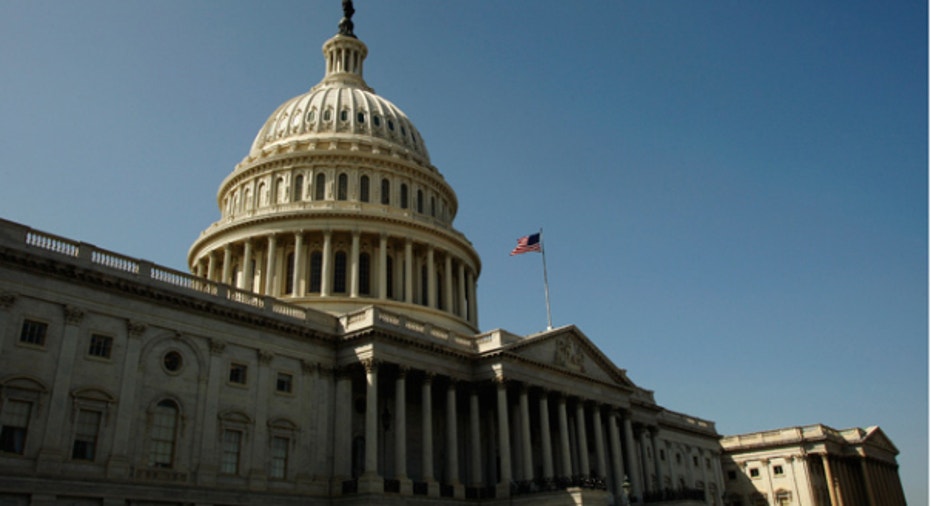The Fight for a Grand Bargain

There is growing momentum in Washington and around the country in the fight to restore fiscal sanity. So get ready for the counter-attack by the special interests and ideologues.
A growing number of Republicans have now stood up to Grover Norquist's organization, Americans for Tax Reform, and disavowed the pledge they signed to not raise taxes. We should all commend legislators like Senator Saxby Chambliss (R-Ga.), Senator Lindsay Graham (R-S.C.) and Representative Peter King (R-N.Y.), who have recently joined in refusing to put ATR's pledge ahead of the nation's interests.
They and other elected officials give us hope that Congress will get behind non-partisan solutions to address both the near-term "fiscal cliff" and the larger "fiscal abyss," represented by our enormous projected deficits and growing national debt.
But the battle is far from over. Ideologues and special interests on the left and right are marshaling forces to crush all efforts to achieve a reasoned fiscal compromise. We are about to discover if our elected representatives are leaders or minions.
Each party has its sacred cow, untouchable in previous negotiations. For the Republicans, it is their insistence on no tax increases; for the Democrats it is a refusal to consider cuts to social insurance programs.
Both positions are irresponsible - because we cannot address our structural deficits and mounting debt burdens without additional tax revenues and reform of existing social insurance programs. After all, total federal liabilities, unfunded promises for Medicare and Social Security, and other commitments are more than $71 trillion and growing by about $100 billion a week.
Already, however, several major unions and other special interest groups - for example, AARP and The Committee to Preserve Social Security and Medicare - have launched campaigns to pressure members of Congress to keep social insurance programs off the table in connection with any fiscal Grand Bargain.
These efforts coincide with the "Social Security Protector's Pledge" championed by Sen. Bernie Sanders (I-Vt.). His pledge now has signatures from 110 representatives and 11 senators.
Meanwhile, Americans for Tax Reform still has signed no-tax pledges from more than 200 representatives and many senators. You can bet that right-wing ideologues will be threatening to punish any Republican legislators who stray.
There are no guarantees that enough of our elected representatives in Washington will stand up to the special interests and the wings of both parties, which have an outsized influence on fundraising as well as the parties' conventions and primaries.
Fortunately, we have a group with a strong spine in the Senate's "Gang of Eight," an informal, bipartisan group seeking to forge a fiscal Grand Bargain. Another encouraging sign is the commitment of rank-and-file members like Representative Jeff Fortenberry (R-Neb.) and Representative Jim Himes (D-Conn.), who rejected special-interest pledges and committed to put everything on the table some time ago.
There is another important reason we might finally get meaningful action no later than the end of 2013. That is the fact that the special interests and ideologues are out of step with a vast majority of the American people. The key message from Nov. 6 was that the voters want Washington politicians to work together and compromise to achieve real solutions for our challenges.
This didn't surprise me, given my extensive travels on fiscal issues. Everywhere I went this fall, during a nationwide fiscal responsibility bus tour, more than 95% of our audiences agreed that putting the nation's finances in order should be a top priority. More than 80% agreed that it would take both additional tax revenue and reduced spending, including social insurance reforms.
A significant majority of "We the People" are ready for tough choices. They are tired of Washington policymakers evading their fiduciary duty and stewardship responsibility to America and Americans.
That message should be loud and clear to every elected official who has shackled himself to special- interest pledges - whether express or implied. People who do so represent part of the problem rather than part of the solution.
In contrast, those who resist and reject the dictates of special interests and who put the interests of the country first are in tune with the American people. It's time for all federal elected officials to rescind these pledges, get to work and achieve real results.
Our collective future may depend on it.



















